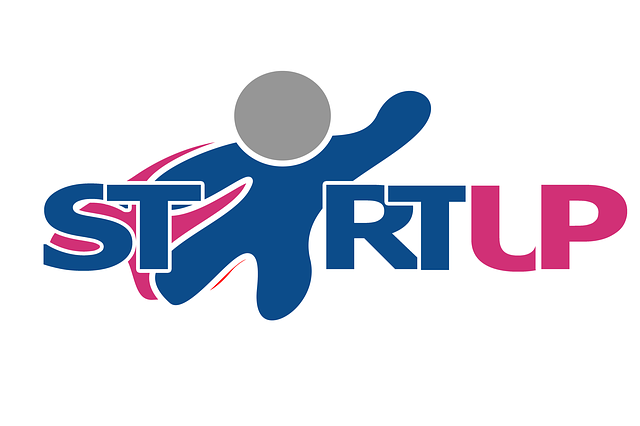Securing Business Insurance for Startups and Entrepreneurs involves understanding and mitigating diverse risks. Through assessing industry, operations, location, team size, and culture, entrepreneurs can identify specific coverage needs such as property damage, general liability, professional liability, and cyber liability protection. Key components include general liability (covering accidents), professional liability (negligence/malpractice), property insurance (physical assets), and workers' compensation (on-the-job injuries). Startups can save money by prioritizing industry-specific risks, bundling policies, and leveraging discounted rates for limited historical data.
Starting a new business comes with unique risks. Understanding your startup’s specific needs is crucial for success. This guide dives into the essential aspects of Business Insurance for Startups and Entrepreneurs, equipping you with the knowledge to make informed decisions. From identifying your unique risk profile to exploring various coverage options, we’ll cover everything from General Liability Insurance to Property Insurance and Workers’ Compensation. By the end, you’ll be equipped to protect your investment and safeguard your future.
Understanding Your Startup's Unique Risk Profile

Every startup comes with its own set of risks, and understanding these is the first step in securing appropriate business insurance for entrepreneurs. When evaluating your startup’s risk profile, consider factors beyond just the industry you’re in. Elements like the nature of your operations, location, size of your team, and even your company culture all play a role in potential liabilities. For instance, a tech startup focusing on software development faces different risks than a food truck operating in a busy downtown area.
By thoroughly assessing these variables, you can identify specific coverage needs. Business insurance for startups should address property damage, general liability for accidents or injuries on your premises, and potentially specialized coverages like professional liability (for advice or services) or cyber liability (in the digital age). This tailored approach ensures you’re protected in areas that truly matter to your unique business.
Types of Business Insurance Coverage for Entrepreneurs

For startups and entrepreneurs, understanding your insurance options is a crucial step in building a resilient business foundation. Business insurance for startups often covers a range of potential risks unique to new ventures. General liability insurance is a cornerstone, protecting against claims of bodily injury or property damage caused by your operations. This includes coverage for accidents involving customers or clients on your premises.
Additionally, entrepreneurs should consider professional liability insurance, especially for service-based businesses. This coverage safeguards against claims of negligence or malpractice related to the services provided. Property insurance is another essential component, protecting physical assets like equipment, inventory, and leasehold improvements from damage or loss due to events such as fires, theft, or vandalism.
Why General Liability Insurance is Essential for Startups

For startups and entrepreneurs, securing general liability insurance is a cornerstone of risk management strategy. This type of business insurance protects against potential claims of bodily injury or property damage that may arise from your operations. In today’s competitive landscape, it’s not just about compliance; it’s a vital tool for safeguarding your financial stability. A single incident could lead to significant legal fees and damages, leaving your startup vulnerable. General liability coverage steps in to cover these expenses, ensuring you can focus on growth and innovation rather than legal battles.
Moreover, general liability insurance provides peace of mind by protecting your business from a wide range of risks, from slip-and-fall accidents at your physical location to product liability issues. It’s an essential step towards mitigating the many uncertainties that come with entrepreneurship, allowing you to concentrate on serving your customers and expanding your business without constant worry about potential legal repercussions.
Protecting Your Business with Property Insurance

For startups and entrepreneurs, protecting your business with property insurance is a critical step in ensuring financial security. This type of insurance safeguards your physical assets, including buildings, equipment, inventory, and fixtures, from potential risks like damage, theft, or natural disasters. By having proper property coverage, you’re not just safeguarding the tangible aspects of your business; you’re also mitigating the risk of significant financial loss that could cripple your startup’s growth.
Property insurance offers a safety net by providing compensation for repairs or replacements in case of covered events. Whether it’s a fire, burglary, or extreme weather conditions, this coverage ensures that you can quickly recover and resume operations without facing insurmountable financial setbacks. With the right property insurance policy tailored to your business needs, entrepreneurs can focus on innovation, expansion, and long-term success rather than worrying about unexpected disruptions.
Navigating Workers' Compensation Insurance Requirements

For entrepreneurs starting their journey in the business world, understanding workers’ compensation insurance is a crucial step in securing your startup’s future. This type of coverage is not just a legal requirement in many regions but also demonstrates your commitment to protecting your employees and their well-being. Workers’ comp insurance provides financial protection for medical expenses and lost wages if an employee sustains an injury or becomes ill on the job. As a business owner, you are responsible for ensuring this safety net is in place, shielding both your startup and its workforce from potential financial burdens.
Navigating these requirements can seem daunting, but it’s manageable with the right guidance. Entrepreneurs should research their local regulations to determine the specific workers’ compensation insurance coverage needed for their industry and employee count. This process involves understanding different policy options, premium calculations based on payroll, and reporting obligations. By proactively addressing these aspects, startup owners can avoid potential penalties, ensure compliance, and foster a safer work environment.
Cost-Effective Solutions for New Businesses

Starting a new business often comes with financial challenges, and securing adequate insurance is no exception. However, there are cost-effective solutions available for entrepreneurs who want to protect their ventures without breaking the bank. Business Insurance for Startups and Entrepreneurs can be tailored to meet specific needs and budgets. Many insurers offer discounted rates for new businesses or those with limited historical data, as they are seen as lower risks. This makes it an excellent time to shop around for coverage.
One strategy is to bundle policies, such as combining general liability insurance with professional liability or property insurance, which can often result in significant savings. Additionally, insuring against common perils specific to your industry or business activities can be more affordable than comprehensive coverage. Remember, while cost-effectiveness is essential, ensuring you have the right level of protection for your startup’s unique risks should always take priority.
